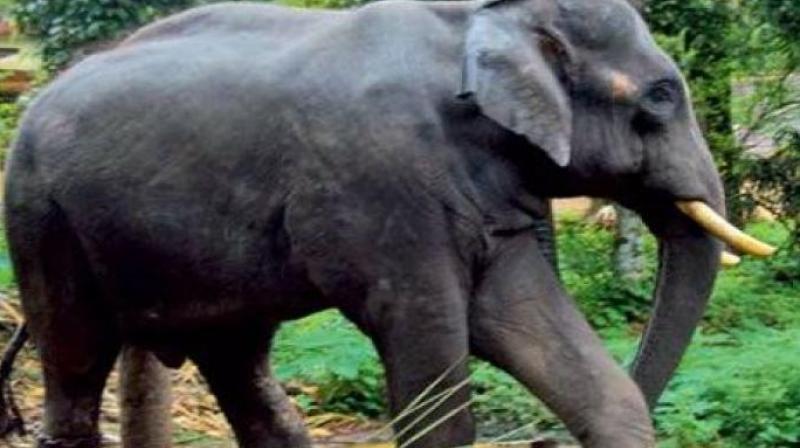Traditional customs help conservation, say experts
Many villagers have a traditional custom of worshipping elephants as they believe the prayer.

Krishnagiri: Farmers who till their lands in villages having elephant corridors are aware about the importance of conserving wild jumbos much before ‘World Elephant Day’ came to be observed in India say experts.
“Farmers getting into elephant conservation are nothing new. Many villagers have a traditional custom of worshipping elephants as they believe the prayer, if answered, will bring prosperity to them” Nishant M Srinivasaiah told Deccan Chronicle.
Nishant, an elephant researcher of ‘National institute of advanced studies’ in the Indian Institute of Science (IIS), Bengaluru added, “this worship is done during the annual festival called, ‘Aanai Pandige (elephant festival)’ observed in the Tamil month of 'Karthikai' in Tamil Nadu and also exist in other states of southern India.”
On the festival day, two clay elephant models are kept in the house and worshipped for three days before abandoning the idols under the banyan tree or bamboo bushes. Another custom of worshipping the pug marks of the elephant that entered their farm to raid crops has been recorded in the villages on the forest fringes in Sathyamangalam of Erode district.
"Contrary to the poaching and other methods in places prone to wild jumbo menace, the farmers lift the pug marks of the intruded elephant and engrave it as stone carving, which is worshipped on every full moon day in a belief of getting good harvest,” Nishant said.
Not all farmers are tolerant to the elephant entering their villages for various reasons that has been recorded since the research started to mitigate the man-animal conflict in India having an estimated elephant population of 30,051 according to the annual report released by the Ministry of Environment and Forests for the year 2013-2014.
“With the increase in population, despite the shrinking of the natural habitat, man-animal conflicts also reached an alarming level. It is estimated that nearly 150 elephants and also 400 people have died due to the conflict each year, may be because of the low tolerance level of people who otherwise observe elephant festivals and other methods of jumbo worship,” said Nishant.
“While, one awaits what the 2017 elephant population estimate would show, it becomes very important to tackle the man-animal conflicts for the long-term conservation and wellbeing of the elephants in various states,” added Nishant.

